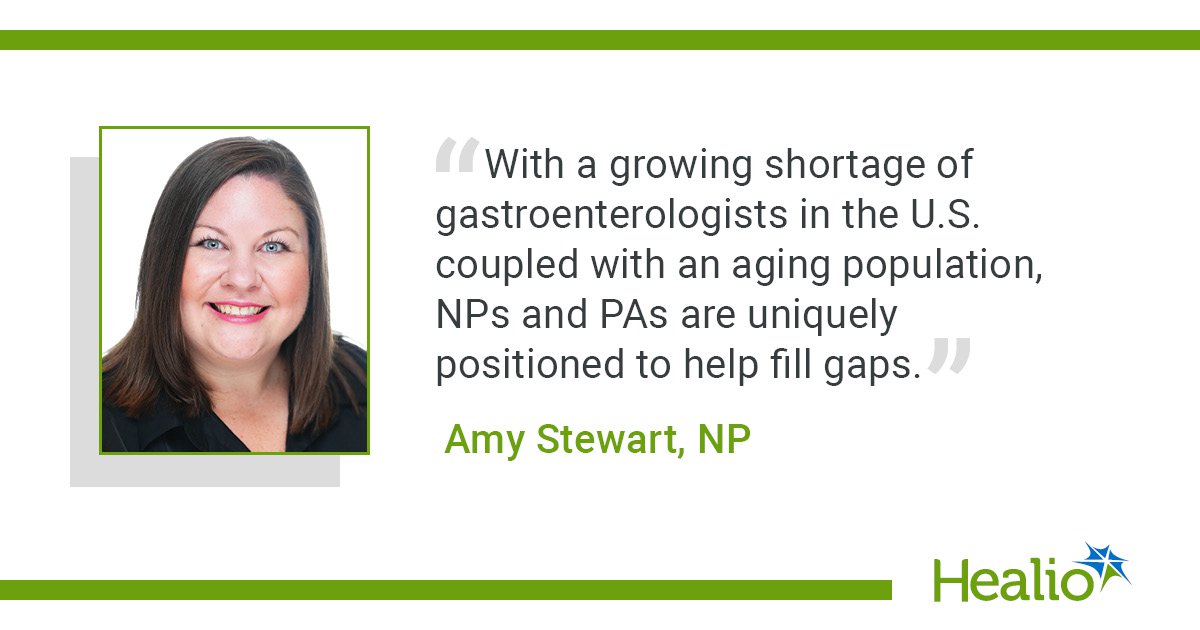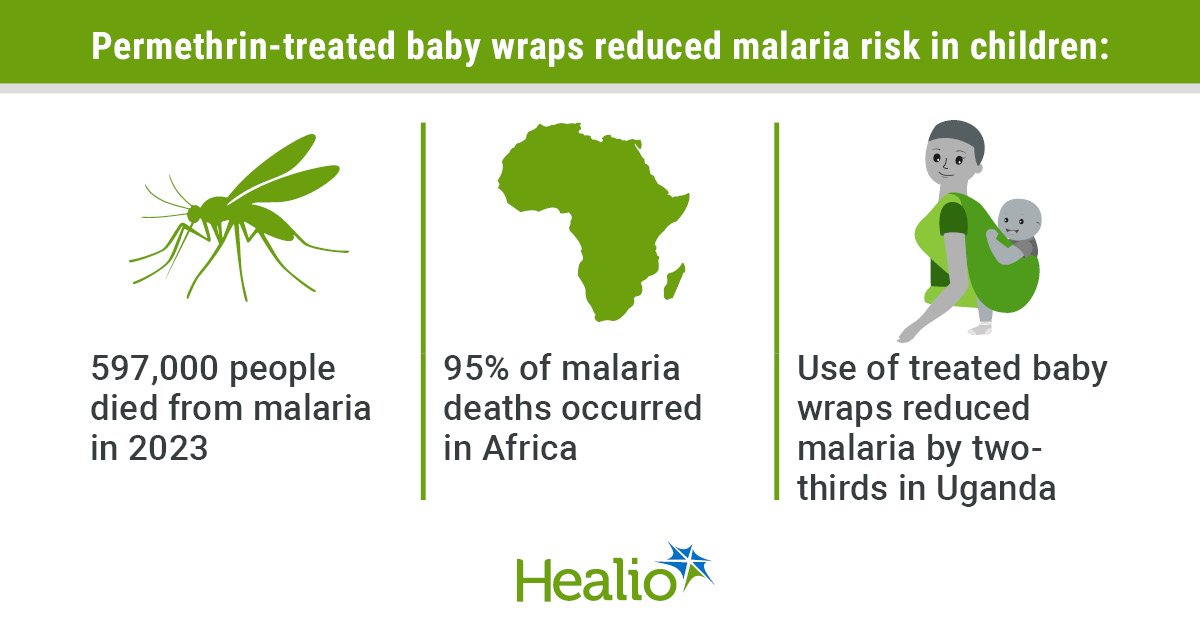October 09, 2025
2 min read
Due to their critical role in health management, the nurse practitioner and physician assistant professions have consistently been among the most sought-after careers, often ranking among U.S. News & World Report’s 100 Best Jobs list.
In 2025, NPs and PAs took the No. 1 and No. 3 spots, even in a list largely dominated by high-demand health care roles.

With a growing shortage of gastroenterologists in the U.S. coupled with an aging population, NPs and PAs are uniquely positioned to help fill gaps while continuing to provide excellent patient-centered care.
However, for advanced practice providers (APPs) to excel in gastroenterology and hepatology, it truly requires a team approach. Most NP and PA programs provide little gastroenterology-specific training, which leads to many learning on the job. The lack of standardization of training, onboarding and continuing education can contribute in a big way to the burnout of APPs.
As our physician colleagues shift to more procedure time to keep pace with demand, APPs are shifting to covering clinics, sometimes with less support. The administrative burdens on practices continue to rise with prior authorization requirements, which sometimes fall on APPs either directly or indirectly — for example, assisting office team members with questions.
In the Healio Exclusive, Laurie Keefer, PhD, raises a good point that “patients can be difficult to love.” As with many other specialties, patients with GI conditions don’t feel well, and we meet them at their worst. While this provides a distinct opportunity to establish meaningful connection over time with patients, it also can take a toll on compassion. Keefer speaks to lack of compassion being an early sign of burnout, along with cynicism.
According to the experts, burnout can occur at any point during the career journey, and often for different reasons. In the early career years, lack of support, education and training can play huge roles in burning out. Organizations like ACG are working to combat this with its new APP mentoring program, which pairs newer APPs with more experienced ones they might not encounter in their own practice, offering personalized guidance and insights on “how to survive the first 3 years.”
According to Sarah Enslin, PA-C, mid-career APPs are hit hardest by burnout. While these APPs are often confident in day-to-day patient care, additional responsibilities such as endless clicks in the electronic medical record, overwhelming portal or MyChart messages, phone calls and lab results can add time to their day, none of which are billable or reimbursable.
Rajesh Keswani, MD, sums it up best: When burnout is occurring, we may miss day-to-day diagnoses for patients. Just as support for APPs is a team sport, so is combatting burnout.
Any solutions that reduce clicks and administrative tasks are essential for providers, so that APPs can focus on actual patient care — often the reason they went into medicine. The potential for AI solutions is exciting, but can be expensive, especially for small practices, and may take time to be implemented broadly.
Enslin underscores the critical need for continuing education and training for APPs: As we grow and train APPs in gastroenterology, we also need to grow and train their leaders. She notes that investing in APP leadership — when APPs report to fellow APP leaders rather than administrators or physicians — could contribute to greater work satisfaction and reduced burnout.
Keswani and Keefer also emphasize that solutions need to be systemic: Real solutions start from the top rather than placing the burden on individual providers to reduce burnout. All providers, including APPs, can flourish in systems that ensure they are trained, supported and genuinely valued.
For more information:
Amy Stewart, NP, is a gastroenterology nurse practitioner and lead APP at Capital Digestive Care. She can be reached at amystewartnp@gmail.com.










